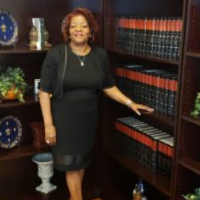 Senoia Divorce Lawyers, Georgia
Senoia Divorce Lawyers, Georgia
Sponsored Law Firm
-
 x
x

Click For More Info:
-
The McReynolds Law Firm, PC
3799 Main Street #87012 College Park, GA 30337» view mapCriminal Defense Defending Your Rights
Let The McReynolds Law Firm, PC handle all your criminal defense needs.
800-919-4121
Includes: Alimony & Spousal Support
Sponsored Lawyers
1-4 of 4 matches
Divorce & Family Law, Bankruptcy & Debt, Divorce, Immigration, Estate
Attorney Chalcia Rainford is a native of Jamaica, West Indies, who has practiced law since 1994. Mrs. Rainford earned her J.D. from John Marshall Law School of Atlanta, Georgia. She also studied in London, England at the Lay Cox College and is a professional registered nurse. Her success does not stop there; Attorney Rainford owns Eccentral, Inc., which is a professional nursing employment agency. She is known for being very intellectual and detail oriented.
(more)


 Jule McReynolds College Park, GA
Jule McReynolds College Park, GA AboutThe McReynolds Law Firm, PC
AboutThe McReynolds Law Firm, PC

